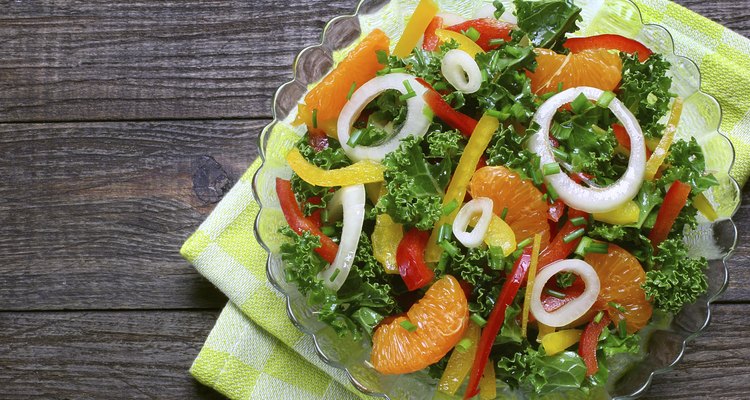
papkin/iStock/Getty Images
Eating an alkaline-based diet may decrease morbidity and mortality associated with chronic diseases, according to an article published in 2012 in the "Journal of Environmental and Public Health." An alkaline diet rich in fruits and vegetables has also been shown to preserve muscle mass in older men and women. Specific food groups are more alkalizing than others, including vegetables, some fruits, specific tree nuts, and particular herbs and spices.
Alkalizing Vegetables
According to the website for the Acid Alkaline Association Diet, examples of alkalizing vegetables include cruciferous vegetables, such as broccoli, turnips, cauliflower, cabbage, collard greens, kale, spinach and onions. Cruciferous vegetables are also dense sources of vitamins, minerals and phytochemicals, such as folate, vitamin C, potassium and carotenoids. Nightshade vegetables, such as tomatoes, potatoes, eggplant and peppers, are alkalizing. However, some people, particularly those with arthritis, may be sensitive to alkaloids in nightshades and should avoid them. Several highly alkaline vegetables, such as kale, are also excellent sources of antioxidants.
Low-Acid Fruits
Alkalizing fruits are apples, berries, grapes, lemons, oranges, peaches, pears, watermelon, pineapple, black currants, apricots and cherries. These fruits are ideal because they are low in sugar, which feeds cancer cells, fuels inflammation and is highly acidic when consumed daily. Avocado is another alkalizing fruit that is also a rich source of heart-healthy monounsaturated fatty acids. Create an alkaline guacamole with mashed avocado, chopped tomatoes, onions and peppers. Some fruit juices -- such as unsweetened apple, orange and grape -- are alkaline.
High-Alkaline, Low-Acid Protein
According to the website for the Acid Alkaline Association Diet, most meats and meat products, including beef, poultry, eggs and wild game, as well as seafood, are acid-forming foods. An article published in 2012 in the "Journal of Environmental and Public Health," reports that dairy products, including processed cheese, hard cheese and cottage cheese, are acid-forming. However, egg whites, whole milk and buttermilk, tofu, almonds and chestnuts are more alkaline sources of protein.
Legumes and Spices
Legumes, such as green beans and lentils, are alkaline foods. By contrast, all grains and grain products, such as wheat, oats, corn, bread and pasta, are acidic. High in phytic acid, grains may block the absorption of minerals that help to buffer acid reactions in the body. Cinnamon, curry, ginger, sea salt and mustard are alkaline spices. Sprinkle fresh fruit with powdered cinnamon and sea salt to awaken flavors and enjoy a double dose of alkalizing nutrition. Curry powder is also a nice addition to vegetables when lightly steamed in coconut milk.
Related Articles

pH Acidity/Alkaline Balance Foods

Foods to Prevent Jaundice

The Pitta Dosha Diet

What Foods Provide Calcium D-Glucarate?
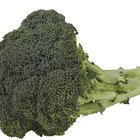
What Vegetables Have Citric Acid?

Foods That Are Good for Arthritis Pain ...

Different Types of Fruits & Vegetables
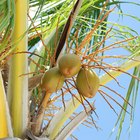
Which Nuts Are Alkaline Forming?
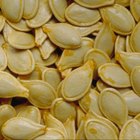
Alkaline & Acidic Foods & Drinks
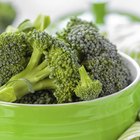
Foods Rich in Magnesium & Phosphorus

What Is an Alkaline Ash Diet?

Foods to Avoid to Prevent Gout

What Are the Ingredients in Proactiv?

How Long Does Banana Bread Stay Fresh?
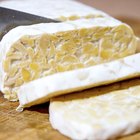
Foods High in Probiotics & Electrolytes

Nutrition Information on Blueberries

Uses of Saltpeter in Food

Foods That Keep You Awake During the Day
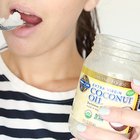
Skin Benefits of Eating Coconut Oil

List of Gout Diet Foods
References
- Journal of Environmental and Public Health: The Alkaline Diet - Is There Evidence That an Alkaline pH Diet Benefits Health?
- The Acid Alkaline Association Diet: Alkaline Foods
- Linus Pauling Institute: Cruciferous Vegetables
- Natural News: Nightshade Vegetables May Cause Adverse Reactions in Some People
- Medical News Today: What Are the Health Benefits of Avocados?
- The Acid Alkaline Association Diet: Acid Alkaline Food Chart
Writer Bio
Sara Police has been writing nutrition and fitness-related articles since 2012. Her research has been published in scientific journals such as "Current Hypertension Reports," "Obesity" and the "American Journal of Physiology." She holds a PhD in nutritional sciences from the University of Kentucky and teaches online nutrition courses for Kaplan University.
Photo Credits
papkin/iStock/Getty Images